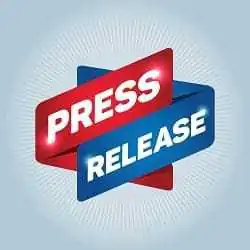Through a collaboration with the Food and Agriculture Organization of the United Nations (FAO), the Government of Grenada is actively engaged in developing its seamoss industry to reach its full potential.
A Stakeholder Validation Workshop was held on June 22, 2023, with the help of the ‘Resilient Aquaculture’ sub-project of the Mexico-CARICOM-FAO Initiative “Cooperation for Climate Change Adaptation and Resilience in the Caribbean,” and a project of FAO’s Technical Cooperation Programme on Promoting Competitive, Sustainable, and Resilient National Value Chain Development in Grenada, in collaboration with the Ministry of Agriculture and Lands, Fisheries and Cooperation. In person and online, the session brought together 42 stakeholders. These stakeholders included representatives from various government agencies, seamoss farmer cooperatives, agro-processors, retailers, exporters, and extension workers, all of whom were looking to verify a strategic plan for improving and developing Grenada’s seamoss business.
Several strategic areas for developing Grenada’s seamoss sector were validated by the participants, including expanding and improving production and post-harvest practices, developing standards for product quality and safety, marketing for local and export markets, raising product awareness, and strengthening infrastructure and support services. These specific sectors were identified during a Value Chain Assessment Workshop in May, which was facilitated by FAO and attended by several public and commercial sector partners.
Krisma Moore, FAO’s Resilient Aquaculture National Project Coordinator, emphasized the significance of these seminars, saying, “this series of Value Chain Workshops for seamoss occurred at a critical time for the industry.” The activities leading up to and during the workshops assisted in identifying market gaps and allowing for the development of strategies to solve them while identifying possible partners who can lead them from outstanding ideas to finished actions. This will serve as a guide for Grenada in moving forward and positively contributing to the dynamic expansion of Grenada’s seamoss sector.”
During the workshop, stakeholders engaged in discussions around the strategic areas to provide essential input and feedback, as well as to agree on the strategic plan to be implemented to ensure the sector’s long-term development. These include value chain stakeholder cooperation, boosting knowledge and skills, and strengthening the production base.
Camerhogne Products’ Mariza James stated, “the session was very informative and insightful.” We were able to network with other seamoss growers and discuss some of our worries and skills as producers. It was a pleasure to be able to contribute to the development of Grenada’s seamoss business. We expect that all of the [actions] discussed at the session will be carried out in the near future.”
Following the approval of the 5-year Upgrading Strategy, the implementation of relevant activities to address each strategic area will begin. Reuniting public and private sector partners who were instrumental in the preparation of the Strategy was a necessary step forward to secure the sector’s efficiency and sustainability. A National Value Chain Team comprised of some of these stakeholders will lead the implementation process in the next months, with the goal of creating a robust and competitive seamoss value chain.
FAO will serve as a facilitator during the project, after which the National Value Chain Team will continue to progress the sector on its own to improve Grenada’s seamoss export potential.





